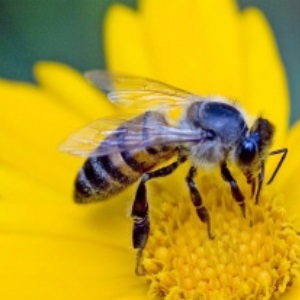
Everyone remembers the searing pain of their first bee sting. What is the difference between a bite and a sting and what should you do when you receive either of these two things? What can you do to avoid being bitten or stung?
A sting is usually the attack of a venomous insect. They inject toxic venom into the skin as a defence mechanism. Non-venomous insects feed on your blood and mostly inject ant-coagulant saliva into the skin, which causes the itching.
The venomous insects in South Africa include bees, wasps, hornets, scorpions and certain spiders. The non-venomous insects include fleas, lice, ticks, bed bugs and mosquitoes. Mosquitoes and ticks, while non-venomous, can however, transmit malaria and tickbite fever respectively, so great care should be taken in areas where these occur.
The symptoms of venomous insect stings
These usually include immediate pain and a burning sensation, swelling, itching, redness and, in certain cases, allergic reactions. Sometimes, as in the case of certain scorpions, the sting site is not clearly visible initially.
In the case if most venomous stings, the sting sites can swell up several centimeters in diameter. This is called a local reaction. Sometimes when someone is allergic to a particular type of venom, hives and itching can occur far from the sting site. In severe cases, these reactions can ultimately affect the airways and circulation and could be life-threatening. Medical attention should be sought immediately.
The symptoms of non-venomous insect bites
Redness, swelling and itching are mostly present. These are usually contained to the area immediately surrounding the bite and usually involve discomfort rather than real pain.
Allergic reactions to non-venomous insect bites are rare, but it should be kept in mind that these insects do sometimes spread diseases like tickbite fever and malaria.
Treatment of bites and stings
Insect bites can mostly be treated with topical antihistamines. These can be bought over the counter at any chemist. Insect bites usually disappear by themselves within a day or two and cause little more than slight discomfort and itching.
In the case of stings, you should be on the lookout for allergic reactions. If the swelling becomes unusually large, or hives occur far from the sting site, swelling of the face occurs, or breathing difficulty ensues, medical attention is required. If the person who has been stung, has had allergic reactions before, immediate action must be taken. Doctors usually use antihistamine and cortisone to counteract these reactions.
It is important in the case of bee stings to remove the stinger as soon as possible as it contains a venom sac, which continues to squirt venom long after the bee has departed. Do this by scraping a firm flat object across the surface of the skin. This removes the stinger without allowing it to inject more venom, which is what happens if you pull it out with tweezers or your fingers.
Preventing bites and stings
When wanting to prevent bites and stings, one can either go the route of avoiding or repelling insects.
Avoiding insects
When avoiding insects, cover yourself well. Long-sleeved shirts, long pants, hats and socks go a long way to protecting you. Avoid wearing perfume or scented lotions, as these attract certain insects, as do bright colours. Remove hives or nests on your property.
Prescription antimalaria drugs are essential if you are going to an area where malaria is rife. Depending on the particular type, these usually need to start being taken several weeks in advance of your visit.
Mosquito nets go a long way to keeping these insects at bay.
When returning from walks in bushy areas, one should check exposed skin, especially around the wrists, ankles and neck for clinging ticks.
Repelling insects
There is a large variety of products on the market that repel insects. These vary from aerosolised sprays, to insect-repelling cream that is applied to the skin, to coils that emit insect-repellant smoke when burnt, to high-frequency sound transmitters that can be operated with batteries or normal current. A visit to a chemist in the area you are visiting should provide you with information on the most effective method of repelling insects.




 Publications
Publications
 Partners
Partners










